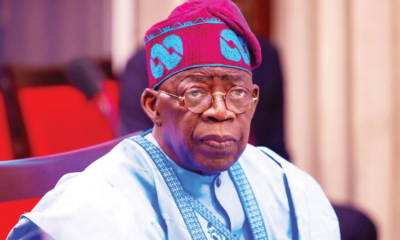Analysis
Passport Politics and the Cost of Reputation
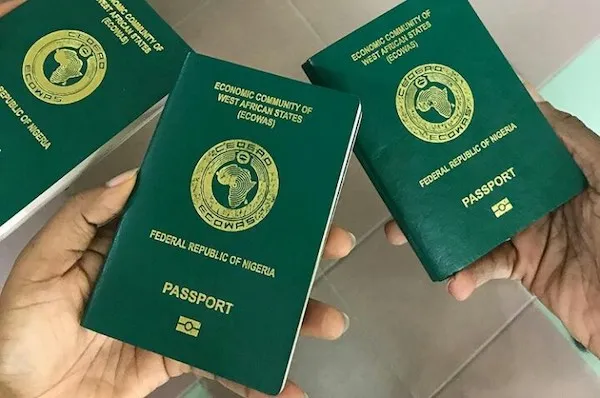
Passport Politics and the Cost of Reputation
By Alabidun Shuaib AbdulRahman
The Nigerian Senate’s proposal to impose a 10-year passport ban on citizens convicted and deported from foreign countries has opened a serious national debate on justice, image, and identity. The bill, sponsored by Senator Bello Sani Abubakar (APC, Niger North), seeks to amend the Passport (Miscellaneous Provisions) Act, Cap P343, Laws of the Federation of Nigeria, 2004. It aims to deter criminal acts abroad and restore confidence in the Nigerian passport — a symbol of national identity that has, over the years, been battered by global perception.
At first glance, the intent appears patriotic. It was argued that too many Nigerians engage in criminal or unethical activities abroad, damaging the reputation of the country and, by extension, every law-abiding citizen who carries the green passport. Indeed, data from various international agencies suggest that the concern is not unfounded. Between 2019 and 2024, the United States deported about 902 Nigerians, while India deported 1,470 in its 2023–24 fiscal year, citing immigration violations and minor crimes. Similar deportations have been recorded in the UAE, Malaysia, and parts of Europe. Lawmakers contend that these repeated incidents have eroded global trust in Nigerian travellers, resulting in tighter visa scrutiny, denial rates, and the humiliation many experience at airports worldwide.
The proposal, therefore, is designed as a deterrent. A signal that the Nigerian state will not tolerate misconduct abroad and is ready to take decisive measures to protect its image. The logic seems straightforward: if citizens know that crime abroad could cost them their passport for a decade, they might think twice before engaging in it. The move could also assure the global community that Nigeria is policing its own, taking responsibility for the behaviour of its nationals beyond its borders. In a world where perception often shapes policy, such assertiveness could, in theory, help rebrand Nigeria as a nation of accountability.
However, beneath this logic lies a complex moral and legal dilemma. While the desire to defend Nigeria’s image is legitimate, the method proposed risks becoming excessive, even counterproductive. Deportation is not always the outcome of criminality. In many cases, it stems from administrative or civil issues such as expired visas, job loss, or immigration policy changes. To punish deportees with a sweeping 10-year travel ban would mean treating minor infractions and serious crimes as equals, an approach that undermines justice rather than upholds it.
More troubling is the difficulty of verifying the circumstances of conviction abroad. Legal systems differ widely, and not all convictions reflect fair trials. Nigerians living abroad often face racial bias, poor legal representation, and systemic discrimination. To automatically penalise them at home based on foreign judgments could amount to endorsing injustice committed elsewhere. A Nigerian unjustly convicted in an unfair jurisdiction should not return to face additional punishment in his own country. That would be double jeopardy — a violation of Nigeria’s constitutional guarantees of fair hearing and human dignity.
The Senate must also weigh the potential economic and diplomatic fallout. Nigeria’s diaspora community is one of its greatest national assets. According to the World Bank, diaspora remittances totalled $21.9 billion in 2023, a figure that in some quarters surpassed oil earnings. These funds support families, fuel local economies, and stabilise the naira. A policy that stigmatizes deported Nigerians could alienate this vast network of contributors and discourage their engagement with the country. It could also project Nigeria as a state quick to disown its citizens rather than rehabilitate them.
Furthermore, the proposed law raises questions of practicality. How will enforcement work? Will the Nigeria Immigration Service maintain a central database of affected individuals? What oversight will exist to ensure that wrongful inclusion is avoided? In the absence of clear administrative safeguards, the policy could be vulnerable to abuse, selective enforcement, or political manipulation. Nigeria’s bureaucracy has a long history of inconsistent record-keeping and arbitrary decision-making; giving it such sweeping power over citizens’ mobility could easily lead to miscarriages of justice.
On the international stage, the proposed ban sends mixed messages. While some foreign governments may view it as Nigeria taking responsibility for its citizens’ actions, human rights observers might see it as excessive and punitive. Image rehabilitation cannot be achieved merely through punishment. A nation’s reputation improves when it demonstrates fairness, transparency, and a commitment to justice and not when it adopts harsh measures to appear firm. A ten-year passport ban may create the illusion of strength but, in practice, could deepen Nigeria’s reputation for bureaucratic overreach and human rights insensitivity.
The real solution lies not in exclusion but in reform. To reclaim the dignity of its passport, Nigeria must address the root causes driving misconduct and illegal migration. Many Nigerians who fall into legal trouble abroad do so out of desperation. Many are victims of poverty, unemployment, and systemic failure at home. The unemployment rate, which stood at 5% in 2024 (by redefined metrics), still hides a massive informal sector and underemployment crisis. Every year, tens of thousands of young Nigerians risk dangerous migration routes, not because they seek crime, but because they seek opportunity. Criminalising them after deportation without addressing the structural pressures that pushed them out would be a misdiagnosis of the problem.
Examples abound of better approaches. The Philippines once faced similar embarrassment when many of its nationals were jailed or deported from Gulf countries. Rather than punish them, the government introduced reintegration programmes offering skills training, counselling, and financial support. Within a decade, deportation numbers declined, and the country’s global image improved. Nigeria could learn from such models — building systems that reform and reintegrate, rather than alienate, citizens who stumble abroad.
That said, the bill’s underlying message that Nigeria must take its global image seriously is valid. The Nigerian passport ranks 88th globally in the July 2025 Henley Passport Index, with visa-free access to a few countries. This is not just a function of global politics. It reflects how other nations perceive our systems, integrity, and international conduct. Rebuilding trust will require a multi-pronged strategy that includes modernising passport security to meet global standards, curbing domestic corruption, strengthening the justice system, and intensifying diplomatic engagement. These measures, not blanket bans, will persuade the world that Nigeria respects global norms and values.
If properly refined, the bill could still play a constructive role. Rather than imposing a flat ten-year ban, a graded system could be introduced, linking the length of travel restrictions to the severity of the offence. Individuals convicted of serious crimes such as drug trafficking, human trafficking, or cybercrime could face longer restrictions, while those deported for minor infractions might undergo rehabilitation programmes before reinstatement. The law could also include a right of appeal, ensuring that justice remains corrective rather than vindictive.
Ultimately, Nigeria’s challenge is not about passports alone but also about identity and credibility in a rapidly changing world. The green passport has long symbolised both the promise and the paradox of the Nigerian state, proud in potential, yet burdened by perception. Restoring its dignity requires more than punitive laws. It demands moral leadership, institutional reform, and an unwavering commitment to fairness. The Senate’s concern is valid, but the method must be smarter, fairer, and rooted in human rights.
The danger of reactionary legislation is that it mistakes appearances for substance. The true strength of a nation lies not in how harshly it disciplines its citizens but in how justly it governs them. Nigeria will command global respect not when it bans more passports, but when it builds a society where fewer citizens feel compelled to tarnish the nation’s name abroad.
Analysis
Time to Defend Every Nigerian Life, by Boniface Ihiasota
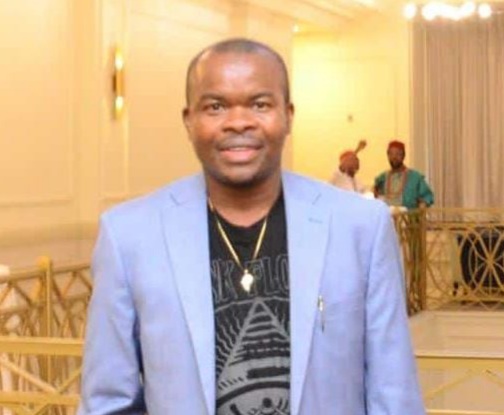
Time to Defend Every Nigerian Life, by Boniface Ihiasota
Nigeria stands today at a moral and historical crossroads, one that demands clear-eyed reflection and courageous action. From the vantage point of the diaspora, with the benefit of distance yet the burden of deep emotional connection, it is impossible to ignore the painful realities unfolding across parts of the Middle Belt and the North. Communities that once lived in harmony now grapple with waves of violence often described with soft, almost technical language — “herder-farmer clashes,” “bandit attacks,” “reprisal killings.”
Behind these labels are fathers and mothers who can no longer return to their farms, children who sleep in fear, elders watching the erosion of traditions that once bound communities together, and families who have endured losses no words can fully capture. These are Nigerians — Christians, Muslims, farmers, herders, artisans, all deserving of dignity and safety.
This crisis is not simply a security failure. It is a moral test of our nationhood. In the diaspora, we encounter societies where public safety, community trust, and national cohesion are not abstract aspirations; they are supported by deliberate, well-funded systems. These systems are not perfect, but they offer models Nigeria can adapt in practical, culturally grounded ways.
And while the statistics on Nigeria’s challenges are sobering, they point not to government guilt, but to the urgent need for coordinated, transparent, data-driven reforms that protect vulnerable communities and rebuild public confidence.
Reports cited by global faith-monitoring organisations, humanitarian groups, and rights bodies present a troubling picture. One frequently referenced dataset in international discourse, including the 2024 World Watch List, places Nigeria among countries where Christians face severe risks, with figures running into the thousands for those reported killed in 2023 alone.
Parliamentary briefings abroad and humanitarian groups such as the Humanitarian Aid Relief Trust have documented recurring attacks, widespread displacement, and systematic destruction of villages. Other organisations, such as Intersociety, also chronicle patterns of violence affecting both Christians and Muslims in rural regions. While some of these figures remain contested within Nigeria, they nevertheless reinforce the urgency of strengthening national protection systems and ensuring that every Nigerian, irrespective of faith or ethnicity, is afforded equal security, equal justice, and equal empathy.
From a diaspora viewpoint, what stands out is not just the scale of the violence but the preventable nature of many tragedies. Advanced countries facing communal tensions have invested in strong early-warning networks, multi-agency coordination mechanisms, and community-centred policing models.
These systems show measurable success by improving response times, reducing escalation, and fostering trust between citizens and security institutions. Nigeria can draw practical lessons from these approaches. Effective national coordination models, such as those used in the United States for crisis management, rely on unified command structures, common communication standards, and the integration of faith-based and community organisations into emergency planning.
A Nigerian adaptation of this model could create a national platform where security agencies, traditional rulers, faith leaders, and civil society jointly analyse threats, share intelligence, and mobilise rapid responses. Such a structure, rooted in Nigeria’s cultural realities but informed by global best practices, would save lives.
Equally important is community policing, not the informal, unregulated kind that fuels abuse or vigilantism, but structured, accountable, measurable partnership policing. Countries like the UK and Canada demonstrate that when local security actors operate with clear legal boundaries, training, and oversight, citizen trust and intelligence flow improve dramatically. Nigeria can replicate this by formally integrating vetted community groups and traditional institutions into local security frameworks under police supervision. This approach respects the local knowledge that rural communities possess while ensuring professional accountability.
Security, however, is only one dimension. The human cost of the violence like displacement, destroyed livelihoods, psychological trauma requires a level of social investment that advanced nations routinely prioritise.
International health bodies highlight that conflict exposure significantly heightens long-term mental health needs. Nigeria will require expanded trauma care, community counselling programs, and accessible psychosocial support delivered through primary healthcare and faith networks. Rebuilding homes, restoring farms, and providing tools and training are equally essential; these interventions not only restore dignity but also deepen trust in government.
Places of worship, too often targeted, need structured protection. Advanced countries have implemented national schemes that support security upgrades for mosques, churches, synagogues, and temples most at risk. Nigeria can create a similar framework in high-risk regions, providing basic infrastructure like lighting, reinforced entry points, and community safety training. Such measures demonstrate state commitment to protecting freedom of worship, a constitutional right and a moral obligation.
As the diaspora, we recognise the efforts the Nigerian government has already made in confronting insurgency and upgrading security architecture. But the next phase requires deliberate attention to vulnerable rural populations in flashpoint areas like Plateau, Benue, and Southern Kaduna. These regions are not peripheral; they are central to Nigeria’s food security, interfaith cohesion, and national stability. Protecting them is both a justice imperative and a strategic necessity.
The path forward must be one of collaboration, not division. Churches and mosques must champion narratives of unity. Civil society must monitor data transparently. Media must avoid sensationalism and focus on verified information. Security agencies must be commended when they act swiftly and fairly, and held accountable when they fall short. Government must demonstrate openness, empathy, and partnership. And the diaspora must continue to contribute technical expertise, advocacy, and resources.
Nigeria has survived darker moments and emerged stronger. With decisive leadership, evidence-based reforms, and a renewed commitment to the sanctity of every Nigerian life, this tragedy can be transformed into an opportunity for national rebirth. The time for blame is over. What Nigeria needs now is compassion anchored in facts, courage backed by action, and collaboration driven by a shared belief that every Nigerian deserves to live and worship without fear.
Analysis
As G20 Moves On Without America, by Alabidun Shuaib AbdulRahman

As G20 Moves On Without America, by Alabidun Shuaib AbdulRahman
When the G20 summit convened this November in Johannesburg, the first time the gathering has ever been held on African soil, one seat was starkly empty. The world’s largest economy, the Donald J. Trump-led United States, simply refused to attend. No president, no senior envoy, not even a delegation. The absence was louder than any diplomatic communiqué, a void that hung over the proceedings like an unspoken challenge.
For weeks before the summit, Trump had telegraphed the boycott. He announced that no U.S. official would participate, calling it “a total disgrace” that the gathering was being hosted in South Africa. He justified the walkout with allegations that Pretoria was enabling abuses against its white-minority Afrikaner community and presiding over land seizures and a supposed “white genocide”—claims widely rejected within South Africa and dismissed by many global observers. Still, he held to his stance, ensuring that the United States would be missing from the table it once dominated.
Yet the empty chair did not halt the summit. Far from it. When the doors closed and the work began, more than forty countries and organisations had confirmed their participation. According to South Africa’s foreign-affairs minister, a total of forty-two delegations were registered: twenty G20 member states (excluding the U.S.), sixteen invited guest nations, and six representing regional economic blocs across Africa, the Caribbean and East Asia. It was one of the most diverse gatherings in the forum’s history.
Of the twenty G20 member states, a clear majority sent their heads of state or government. Four countries opted for high-level substitutes: Russia, Mexico and Argentina sent their foreign ministers or equivalents, while China was represented by its Premier rather than President Xi Jinping. Apart from these deviations and the complete American boycott, the turnout remained strong. At least sixteen G20 countries had their top leadership present, a level consistent with or even above several previous summits.
The question, then, is what this moment signifies—for the G20, for Africa’s place in global governance, and for a world increasingly shaped by fractured geopolitics.
The symbolic dimension is impossible to ignore. For decades the United States has been the gravitational centre of global economic coordination, the anchor whose participation guaranteed that G20 pronouncements could be translated into global action. Without Washington in the room, many of the traditional levers of influence like financial stability mechanisms, trade dynamics, institutional power felt looser and less predictable. The absence introduced doubt: could the G20 still claim to be the premier platform for steering the global economy if its most powerful member stayed away? Some analysts wondered whether the forum’s future was in jeopardy.
Yet paradoxically, the boycott created breathing space. Instead of collapsing under the weight of American non-participation, the summit moved forward with surprising cohesion. Leaders adopted a 122-point declaration issued unusually on the summit’s opening day that centred on climate action, debt sustainability, energy transition and global inequality. These were not peripheral concerns but core priorities, particularly for developing economies. And critically, they reflected Africa’s agenda far more directly than in past years.
For Africa, a continent long relegated to the fringes of global decision-making, the Johannesburg summit brought a subtle but significant shift. It marked a moment where issues that have shaped African suffering and aspiration, unsustainable debt, climate vulnerability, access to green energy, development finance were not treated as charity cases or footnotes but as global imperatives. South Africa’s leadership in shaping the agenda was evident: it shepherded conversations that placed the continent not as a crisis zone but as a partner with agency.
Even the ending of the summit carried symbolism. The traditional handover of the G20 presidency, typically marked by the passing of a wooden gavel from one host to the next, did not unfold in its usual choreography. President Cyril Ramaphosa brought the meeting to a close with a strike of the gavel, but there was no American official to step forward and receive the ceremonial baton. The moment underscored the deeper reality: the world’s most powerful nation had chosen absence in a year when Africa chose presence.
Naturally, this raised concerns. If powerful states begin treating multilateral forums as optional, depending on domestic politics or ideological sentiments, the foundations of global governance weaken. The G20 has played central roles in navigating financial crises, stabilising commodity markets, coordinating pandemic responses and mobilizing climate finance. A precedent where a superpower boycotts the summit could encourage similar behaviour by others in future moments of crisis. The potential ripple effects on global trust, crisis management and economic coordination are worrying.
But Johannesburg also demonstrated that the G20 is more adaptable than its critics assume. Instead of paralysis, the summit produced consensus. Instead of division, it surfaced shared interests. And instead of waiting for the United States to validate decisions, countries across continents showed that cooperation was still possible, even necessary, without America’s guiding hand.
For many African nations, this sense of possibility was palpable. For years, they have been the subjects of global policies drafted in distant capitals. In Johannesburg, they felt more like contributors. The declaration reflected structural concerns that matter from Lagos to Nairobi: access to concessional finance, green industrialization, fair energy transition pathways, investment in resilience rather than repeated cycles of vulnerability. These were not afterthoughts but central pillars.
Still, optimism should remain grounded. Declarations alone do not build roads, transition energy grids or relieve debt burdens. They do not shift the voting power held by wealthy nations in global financial institutions. And they do not erase the influence the United States wields over the IMF, World Bank and other structures that control the flow of global capital. Even in absence, Washington’s shadow is long.
At the same time, the boycott raises uncomfortable questions about the future. If summits can be walked away from because of domestic political narratives or ideological disagreements, the global architecture becomes more fragile. Future crises, whether debt shocks, pandemics, food shortages or climate-induced disasters require collaboration and not boycotts. A forum that can be abandoned sets troubling precedents.
Yet this moment may also become a hinge in history. Not because it solves everything, but because it marks a shift in rhythm. It shows the system bending, under pressure, toward greater inclusion. It proves that Africa can host, convene and even lead. More than nineteen members signed the declaration; voices from the Global South resonated with unusual clarity. And for once, those who are often asked to wait for the powerful to decide had already begun making decisions of their own.
For Nigeria, the implications are profound. The global conversation is moving toward issues that directly affect its development path: debt restructuring, climate resilience, green industrial transformation, food security and transparent governance. Nigeria must engage with these shifts deliberately. Declarations will mean little if national policy fails to align with them. The country needs bold investments in climate adaptation, expanded support for agriculture and manufacturing, improved fiscal management and stronger accountability mechanisms. Its diaspora and civil society have roles to play as watchdogs, advocates and bridges linking global promises to local action.
The United States will remain central in global affairs. Its currency, markets and institutional power ensure that. But the Johannesburg summit demonstrated something important: relevance in the G20 is no longer solely measured by presence. Sometimes absence reshapes the conversation more than participation. The empty chair at Johannesburg was not just a diplomatic symbol; it became a catalyst for rethinking old assumptions.
The challenge now is to ensure that the space created by that absence is not wasted. The real measure of success will lie in implementation in whether climate justice initiatives become real funding pipelines, whether debt deals become fairer, whether green energy investments materialise, and whether global decisions begin to reflect the needs of people from Kenya to Ghana, rather than only those in United States or Germany. It will lie in whether African leaders rise to the occasion, using the moment to insist on equity rather than settling for symbolism.
The world watched as the G20 pressed on, limping perhaps, but moving. And Africa did more than host; it spoke, it influenced, it guided. If Nigeria and the rest of the continent seize the momentum, the reverberation of that gavel strike in Johannesburg could echo not only through global institutions but through local communities seeking fairness and development.
In the end, the empty seat left behind by the United States did not define the summit. The G20 may not have needed America to agree on a declaration in 2025. But building a future that transcends absence will require a different kind of presence.
If Africa answers that call, history may yet record that the empty chair marked not a failure, but the beginning of something new.
Alabidun is a media practitioner and can be reached via alabidungoldenson@gmail.com
Analysis
The Cost of Diplomatic Absence, by Boniface Ihiasota

The Cost of Diplomatic Absence, by Boniface Ihiasota
There are moments when international events force nations to rethink long-standing practices. The recent warning issued by the United States President Donald Trump—his threat to “completely wipe out the Islamic terrorists” in Nigeria has had such an effect. It cast an uncomfortable spotlight on Nigeria’s diplomatic posture and prompted a renewed effort by President Bola Ahmed Tinubu to revisit the long-delayed process of appointing envoys to Nigeria’s missions abroad.
Since September 2023, when the Federal Government recalled ambassadors from 76 embassies, 22 high commissions, and 11 consulates for a reassessment of foreign policy, these missions have remained without substantive leadership. What began as a routine institutional review evolved into an extended period of silence, one that has raised concern among observers of Nigeria’s global engagement. Prolonged diplomatic absence, especially from key international capitals, is not merely a bureaucratic inconvenience; it has consequences for national reputation, security, and strategic influence.
Diplomacy, in its essence, is the outward expression of national purpose. It operates not only through grand speeches or high-level summits but also through the daily, often quiet, presence of envoys who interpret national interests to the world. In this sense, ambassadors are more than titular heads of missions. They embody a nation’s voice, reflect its priorities, and help maintain its visibility on the global stage. Their work is unglamorous but indispensable.
When a country leaves its diplomatic missions without ambassadors, it risks conveying the wrong message. In international relations, absence is not neutral; it is interpreted. It can suggest indecision, internal disarray, or a diminished sense of global responsibility. More importantly, it creates a vacuum in which other actors both state and non-state alike shape narratives and perspectives that later become difficult to reverse.
Nigeria’s empty seats in global diplomatic spaces have come at a moment when the country needs the opposite posture. With increasing global scrutiny over security conditions, economic performance, and governance, Nigeria requires a strong and articulate presence in world capitals. Without ambassadors, opportunities to shape discussions, build trust, and negotiate mutually beneficial partnerships are significantly reduced.
Foreign perception matters. It influences investor confidence, determines the strength of international coalitions, and frames global understanding of domestic challenges. Where perception is left unmanaged, misinformation thrives. Where representation is weak, adversarial interpretations gain traction. The absence of ambassadors thus weakens Nigeria’s ability to shape outcomes that directly affect its security and prosperity.
This context makes the delay in deploying ambassadors particularly costly. Whatever justification may have guided the temporary withdrawal of envoys, the prolonged pause has become counterproductive. Diplomacy is not a field that tolerates long silences. Nations communicate constantly, if not through official channels, then through alternative interpretations, assumptions, and second-hand narratives.
The renewed urgency to appoint envoys is therefore not only timely but necessary. Diplomacy is a critical pillar of national security. While the armed forces confront threats at home, ambassadors work to secure understanding, cooperation, and support abroad. No envoy can stop terrorism in Nigeria, but a well-positioned ambassador can correct harmful mischaracterisations, build alliances that improve intelligence-sharing, and advocate for policies that align with Nigeria’s interests.
In the absence of such representation, other voices dominate. And in global diplomacy, the most powerful argument often belongs to the most present actor.
The recent tension triggered by Trump’s comments demonstrates the risk of leaving Nigeria’s international presence thin. The challenge is not solely the comment itself but the possibility that it gains momentum in diplomatic circles without Nigeria’s strongest counter-narrative in place. Embassies without ambassadors lack the authoritative leadership required to engage effectively with policymakers during such moments.
Diplomatic presence is not symbolic; it is strategic. Nations that understand this invest heavily in their foreign missions. They appoint capable, knowledgeable envoys who understand both the domestic context they represent and the global environment they operate in. They ensure that ambassadors are not merely figureheads but active participants in shaping international views.
Nigeria must embrace this approach. The global environment is shifting rapidly—economically, politically, and technologically. Countries that fail to adapt are left behind. This is not the time for Nigeria to be absent from critical diplomatic engagements. It is a time to reaffirm its place, articulate its priorities, and demonstrate its relevance.
Ultimately, diplomacy is about purpose. A nation must know what it stands for and deploy its resources accordingly. Leaving missions indefinitely without ambassadors sends the wrong signal, not only to the international community but also to Nigerians at home and abroad who expect a proactive foreign policy.
If Nigeria seeks stronger partnerships, improved security cooperation, increased investment, and a more accurate global understanding of its challenges and aspirations, it must begin with one foundational step: ensuring that its diplomatic seats are not left empty.
A nation that does not speak cannot be heard. And a nation that does not show up cannot shape its future.
-

 News7 days ago
News7 days agoInsecurity: US Spy Plane Begins Operations in Nigeria
-

 News7 days ago
News7 days agoTinubu Sends 32 Additional Ambassadorial Nominees to Senate for Confirmation
-
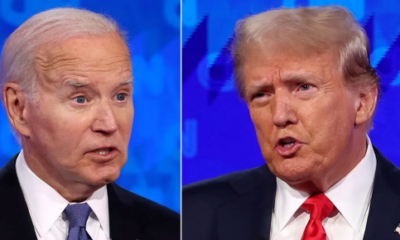
 Politics7 days ago
Politics7 days agoUS Shooting Sparks Controversy Over Afghan Vetting as Trump Blames Biden
-

 Analysis7 days ago
Analysis7 days agoAs G20 Moves On Without America, by Alabidun Shuaib AbdulRahman
-

 News7 days ago
News7 days agoIsraeli PM Netanyahu Seeks Presidential Pardon Amid Ongoing Corruption Trials
-
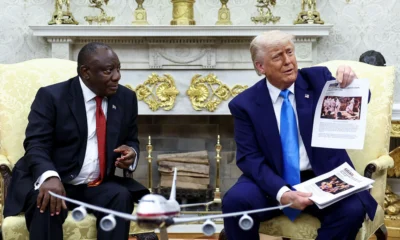
 News7 days ago
News7 days agoUS–South Africa Rift Deepens Over G20 Boycott and Diplomatic Snubs




